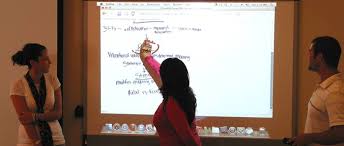How to Teach Young Children to Code

One of the more central challenges with teaching young children how to code is to convince ourselves – as teachers and parents, of the importance of learning to code. The benefits have been repeated ad nauseam; we live in an increasingly digitized world, our kids must learn to “cope” with and live with technology, etc. To me, however, this is not a good enough reason for educators to want to teach children to code. While it is certainly true that a computer science or STEM job can pay potentially 40% more than a non-tech job and that they are the most available and fastest growing kind of job, there is also a great value that learning to code can provide to all children regardless of what profession they get into when they are older. Interestingly, teaching children to code – doesn’t require you to code yourself (although it helps!) and neither does it mean that you need to relinquish limiting screen-time goals.
So here is why you should incorporate coding into your curriculum today – coding as a skill requires analytical thinking. By teaching coding, you are helping children understand and develop the skills to solve large problems by breaking them down into a sequence of smaller, more manageable problems. Nearly all forms of work today need this type of skill because we are now a more application oriented and problem-solving oriented society. Computational thinking is the backbone of research and technology and is also awe-inspiringly applicable to a range of fields such as economics, business, the arts and design, the performing arts and history too.
The benefits, of course, are not limited to work, though, as this Huffington Post article points out, analytical thinking is important for leading a better life too – if you can code and absorb it with the discipline to work through and re-examine and correct, you can also adopt the same approach to life and its many complex decisions. This is something we all want our kids to have the ability to do, cope and make good decisions.
With the reasons, out of the way, we can now look at how we can get kids interested in coding. Children are often more interested in outcomes than in processes; data shows that children are at least as much interested in art and design as in computers, for example.With toddlers, get started with logic puzzles – after all, coding is based on logic and decision trees. Once a toddler has acquired mastery over a puzzle or building a LEGO structure, ask him/her to teach it back to you. Your inability to follow will teach the child how to give better and more comprehensive instructions.
For older children, turn to an old favorite LOGO, a visual programming package that requires the programmer to write code to produce drawings! The Turtle Academy is an excellent place to learn LOGO, and it is addictive, children are drawing and programming before they even know it. Moving on from art, the next best strategy to get kids to code is to have them to make something instead of just playing games. To accomplish this,introduce them to Hopscotch. It is a computational environment designed to let users build their own games and interactive movies/animations including music, using the most intuitive and simple programming blocks or actions. The idea is that the joy of seeing one’s creations coming to life can pique interest in the most complex aspects of coding such as setups and syntax.
For still older children, it is best to introduce them to a self-paced coding program such as Tynker, with its own programming curriculum and offerings for schools – the Tynker hour of code is a fantastic introduction to coding and incorporating its curriculum into lesson plans is easy. Older children also like to tinker, and this is a good time to introduce them to programmable circuit boards through Arduino or the Raspberry Pi so they know all about the Internet of Things (IoT). If you’d rather go the robotics way the solar bot kit is fascinating too,or you could choose to have your own house/class-robot too.
There is a wonderful world of tools to help bring tech and coding specifically, into your classroom. Many of these are backed by powerful world-class pedagogies and curricula and are free. More than a few have great strategies and resources on how to incorporate tech and coding into your routine. Have you found a coding resource that you employ in your classroom or school? Share with us in the comments below!






